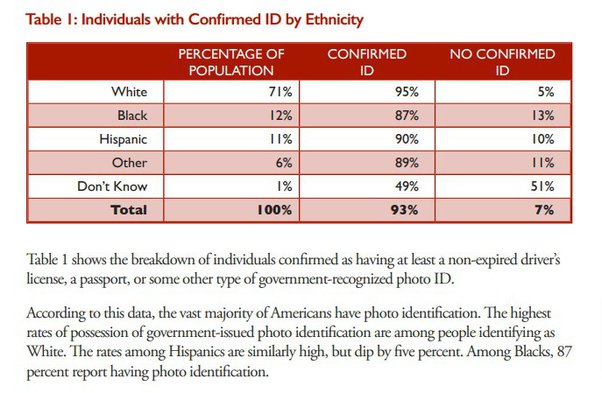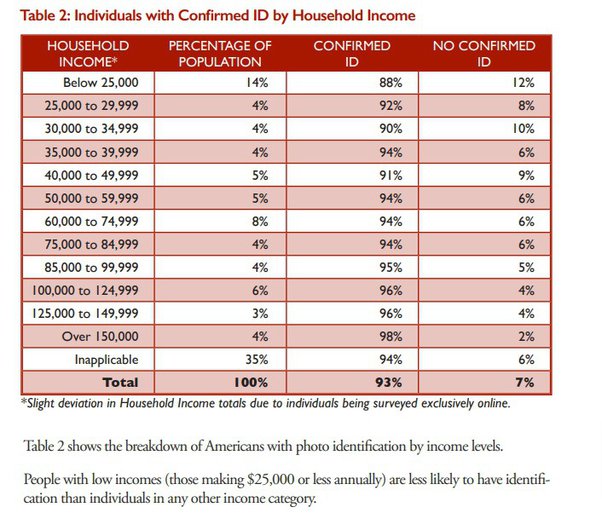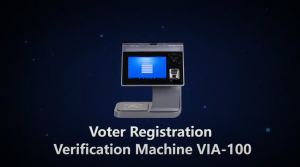Does requiring voters to have an ID have any merit?
The question of whether requiring voters to have an ID has any merit is a complex and highly debated topic.
Proponents of voter ID laws argue that they help prevent voter fraud, ensure the integrity of elections, and promote public confidence in the electoral process. They argue that requiring voters to show an ID is a common-sense measure that is necessary to protect the integrity of the democratic process.
Opponents of voter ID laws argue that they disproportionately impact low-income and minority voters, who may be less likely to have the required identification, and may face significant barriers to obtaining it. They argue that voter ID laws are often motivated by partisan interests, and that there is little evidence of widespread voter fraud that would justify such laws.


Lots of countries have mandatory photo IDs that are possessed by almost every adult. People get their national ID card when they’re in high school, and ID possession rates among people of different socioeconomic groups are very similar. If a law was proposed to give every US citizen a national ID card free of charge, I don’t think very many Democrats would object.
“Voter ID laws”
It's worth noting that the extent of voter fraud in the United States is a matter of debate, with some studies suggesting that it is rare, and others suggesting that it may be more common than previously thought. Similarly, the impact of voter ID laws on voter turnout and electoral outcomes is a subject of ongoing research and debate.
With the image recognition technology, the equipment realizes the identification of voters and the distribution of ballots to avoid the wrong distribution of ballots. The equipment is highly modular in design, and multiple identification methods can be realized through module replacement. After arriving at the polling station, voters can verify their identities by verifying their IDs, faces or fingerprints.
In summary, the question of whether requiring voters to have an ID has any merit is a complex and highly contested issue. While proponents argue that voter ID laws are necessary to protect the integrity of the electoral process, opponents argue that they may have a disproportionate impact on certain groups of voters, and may be motivated by partisan interests. Ultimately, the merits of voter ID laws will depend on a variety of factors, including the specific details of the law, the context in which it is implemented, and the impact it has on the electorate.
Post time: 25-04-23





